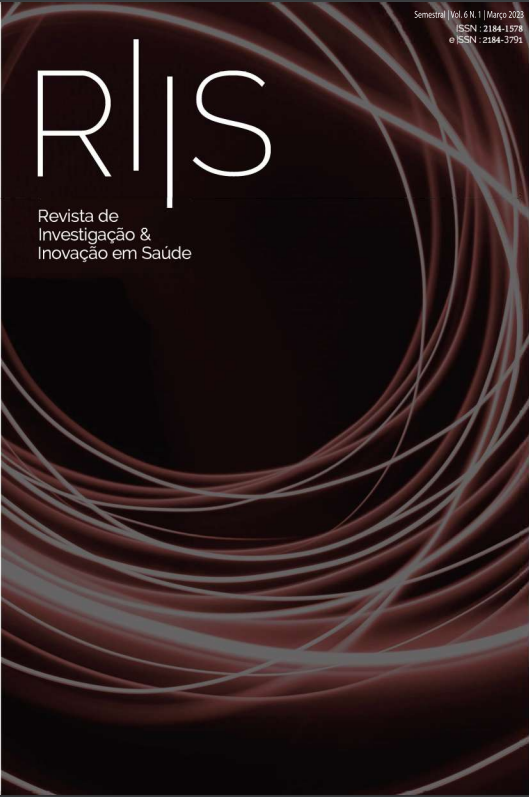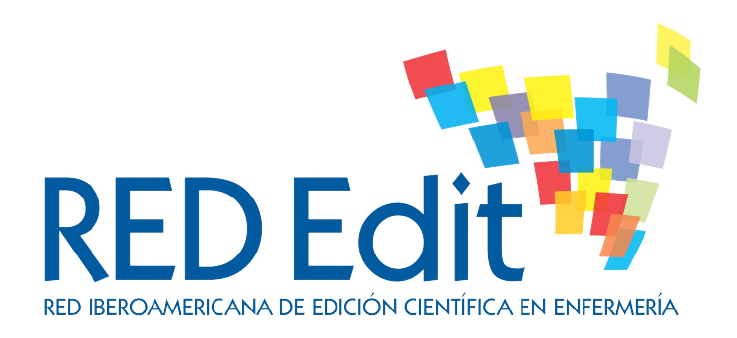Needs of Families with a Member with Neuromuscular Pathology: Functional Dimension
DOI:
https://doi.org/10.37914/riis.v6i1.216Keywords:
Family Health, Neuromuscular Diseases, Nursing, NeedsAbstract
Background: meeting the needs of families with a member who has a Neuromuscular Disorder (ND), enables an improvement in their quality of life, minimizing the possibility of illness and allowing greater family contribution to their functions. Objectives: characterize the needs of families with a member who has a ND in the functional dimension. Methodology: a quantitative, descriptive, cross-sectional study was carried out with an intentional sample of 30 families. The operative matrix of the Dynamic Model of Family Assessment and Intervention (MDAIF) was used as a data collection instrument. Data processing and analysis were performed by descriptive statistics. Results: most members who have a ND are dependent on self-care, clothing, hygiene and using the bathroom; families have saturation of home care role and caregiver role. Conclusion: family nurses will be able to help families by creating programs that allow: -the readjustment of family roles where there is saturation; -the possibility of working and supporting caregivers; -specific training regarding the people who have a ND.
References
Acar, A. E., Saygı, E. K., İmamoğlu, S., Öztürk, G., Ünver. O., Ergenekon. P., Gökdemir, Y., Özel, G. & Türkdoğan, D. (2021). The Burden of Primary Caregivers of Spinal Muscular Atrophy Patients and Their Needs. Turk Arch Pediatr, 56(4), 366-373 https://turkarchpediatr.org/en/the-burden-of-primary-caregivers-of-spinal-muscular-atrophy-patients-and-their-needs-162621
Alamian, A. & Paradis, G. (2012). Individual and social determinants of multiple chronic disease behavioral risk factors among youth. BMC public health. https://search.ebscohost.com/login.aspx?direct=true&db=mdc&AN=22439966&lang=pt-pt&site=eds-live DOI: https://doi.org/10.1186/1471-2458-12-224
Antunes, L. T. (2016). O Cuidado Informal a Doentes com Doença Neuromuscular: Estudo da Prevenção do Risco de Aspiração no Autocuidado Alimentar-se. [Dissertação de Mestrado em Enfermagem. Universidade do Minho]. https://repositorium.sdum.uminho.pt/bitstream/1822/49383/1/Lu%C3%ADsa%20Teixeira%20Antunes.pdf
Årestedt, L., Persson, C. & Benzein E. (2014). Living as a family in the midst of chronic illness. Scandinavian Journal of Caring Sciences. https://search.ebscohost.com/login.aspx?direct=true&db=ccm&AN=104005338&lang=pt-pt&site=eds-live
Associação Portuguesa de Neuromusculares. (2019). A Associação Portuguesa de Neuromusculares e os Neuromusculares. http://apn.pt/apn/
Associação Portuguesa de Neuromusculares. (2021). A Associação Portuguesa de Neuromusculares e os Neuromusculares. http://apn.pt/apn/as-doencas-neuromusculares/
Conway, K. M., Eichinger, K., Trout, C., Romitti, P. A., Mathews, K. D. & Pandya. (2019). Needs management in families affected by childhood-onset dystrophinopathies. SAGE open medicine, 7, 2050312119834470. https://doi.org/10.1177/2050312119834470 DOI: https://doi.org/10.1177/2050312119834470
Evkaya, A. A., Karadağ, S. E. & İmamoğlu S. (2021). The burden of primary caregivers of spinal muscular atrophy patients and their needs. Turk Arch Pediatr; 56(4), 366-373. DOI: 10.5152/TurkArchPediatr.2021.20117 DOI: https://doi.org/10.5152/TurkArchPediatr.2021.20117
Family Ties Website. (2010). Family Ties Website. http://www.edu.pe.ca/southernkings/family.htm
Figueiredo, M. H. (2013). Modelo Dinâmico de Avaliação e Intervenção Familiar: uma abordagem colaborativa em Enfermagem de família. Odivelas. Lusociência.
Kaakinem, J., Gedaly-Duff, V., Coehlo, D. & Hanson, S. (2010). Family health care nursing. Theory, practice and research. 4th edition. Philadelphia: F. A. Davis Company.
Gonçalves, E. (2018). Estratégias de Coping da Família da Pessoa Portadora de Esclerose Múltipla. [Tese de Mestrado em Enfermagem Comunitária. Guarda: Escola Superior de Saúde – Instituto Politécnico da Guarda].
INSA. (2019). Doença Crónica. Infográfico INSA. http://www.insa.min-saude.pt/infografico-insa-%E2%94%80-doenca-cronica/4
Olson, D. H. (1991). Three-dimensional (3-D) Circumplex model and revised scoring of FACES. Family Process, 30, 74-79. DOI: 10.1111/j.1545-5300.1991.00074.x DOI: https://doi.org/10.1111/j.1545-5300.1991.00074.x
Padovani, C., Lopes, M. C. L., Higahashi, I. H., Pelloso, S. M., Paiano, M., & Christophoro, R. (2018). Being caregiver of people with Parkinson’s Disease: experienced situations. Revista Brasileira de Enfermagem, 2624–34. https://search.ebscohost.com/login.aspx?direct=true&db=ccm&AN=133970832&lang=pt-pt&site=eds-live DOI: https://doi.org/10.1590/0034-7167-2017-0008
Tesei, A., Nobile, M., Colombo, P., Civati, F., Gandossini, S., Mani, E., Molteni, M., Bresolin, N., & D'Angelo, G. (2020). Mental health and coping strategies in families of children and young adults with muscular dystrophies. Journal of neurology, 267(7), 2054–2069. https://doi.org/10.1007/s00415-020-09792-6 DOI: https://doi.org/10.1007/s00415-020-09792-6
Waldboth, V., Patch, C., Mahrer-Imhof, R., & Metcalfe, A. (2021). The family transition experience when living with childhood neuromuscular disease: A grounded theory study. Journal of advanced nursing, 77(4), 1921–1933. https://doi.org/10.1111/jan.14754 DOI: https://doi.org/10.1111/jan.14754
Downloads
Published
How to Cite
Issue
Section
License
Copyright (c) 2023 Tiago Marques, Lídia Moutinho, Maria Fernandes, Virgínia Guedes, Maria Ferreira, Maria Figueiredo, Anita Marques

This work is licensed under a Creative Commons Attribution 4.0 International License.















